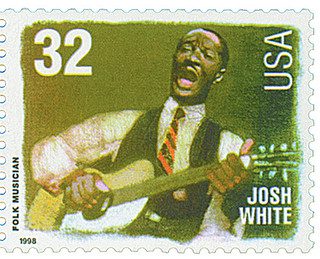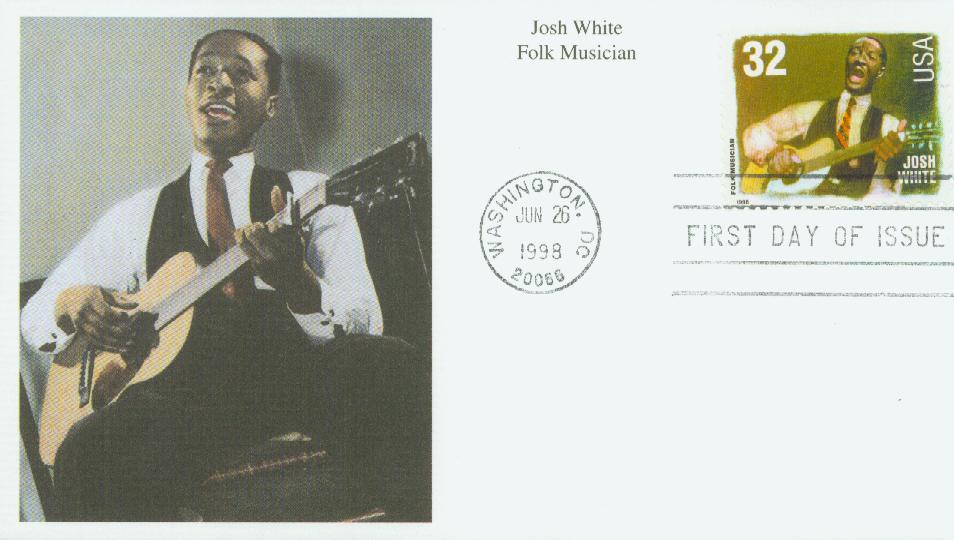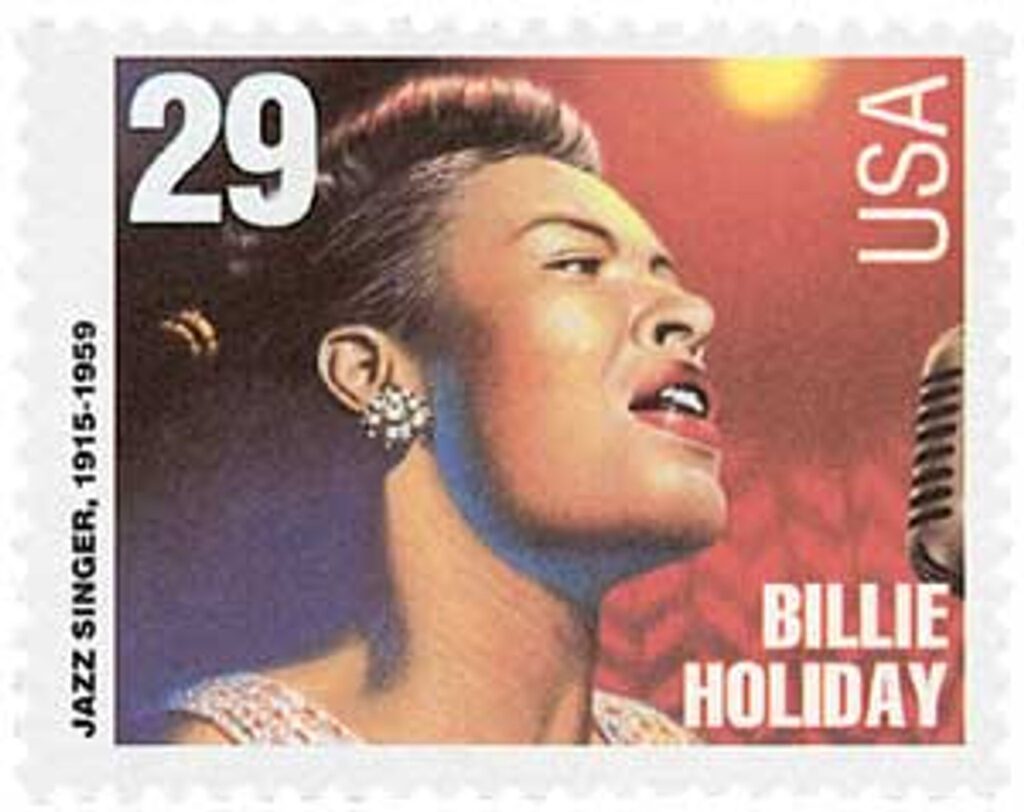Joshua Daniel White was born on February 11, 1914, in Greenville, South Carolina. A trailblazing musician, White broke barriers with many notable firsts…
White was one of four children born to a poor preacher and his wife. His mother helped foster his love of music beginning when he was five years old, after which he sang in the church choir. In 1921, White went on the road with street singer Blind Man Arnold. White collected coins from Arnold’s performances, and was paid $2 a week for his help. White soon began dancing, singing, and playing tambourine for Arnold and other blind street singers. White often danced barefoot in tattered clothes and slept in fields or stables. It was during this time that White learned the guitar techniques of all these performers.
In 1927, White met a record producer in Chicago who hired him as a session guitarist. After backing several artists for Paramount Records, he recorded his first record with Blind Joe Taggart. However, all the earnings from the record went to Taggart. Eventually, the producer who discovered White threatened to have Taggart arrested for indentured servitude if he didn’t give White his share of the earnings. Once Taggart finally did, White was able to buy his own clothes and shoes. He then returned home to Greenville to help his mother and siblings.
In 1930, representatives from ARC Records were searching for White after hearing his recordings for Paramount. They eventually found him and convinced his mother to sign a recording contract (since he was underage) and promised he would only sing religious songs. Arriving in New York, he was referred to as Joshua White, the Singing Christian.

After a few months of recording religious songs, ARC persuaded White to start recording blues songs. He signed a new contract under the name Pinewood Tom. He also used the name Tippy Barton for some recordings. During this time, White worked as a session guitarist with several blues musicians.
In 1936, White injured his hand in a fight and quit music for two years, finding employment as a dock worker, elevator operator, and building superintendent. After regaining the use of his hand, White created a new band and began performing at private parties. At one of these parties, he met Broadway director Leonard De Paur, who had been looking for an actor, singer, and guitarist for John Henry. He’d spent the previous six months auditioning performers and listening to records. He eventually narrowed it down to Pinewood Tom and the Singing Christian, both of whom he discovered were Josh White.

The play opened on Broadway in January 1940. Though it didn’t have a long run, it helped advance White’s career, and soon he was performing with Woody Guthrie, Lead Belly, and Burl Ives. Between 1940 and 1950, he appeared in several radio dramas, plays, and Hollywood films. In 1940, President Franklin D. Roosevelt heard White’s protest records and invited him to become the first black artist to give a White House Command Performance. Elevated to the national stage, White broke barriers, becoming the first blues musician to attract largely white audiences and play at formerly segregated venues.
In 1944, White recorded “One Meatball,” which became the first record by an African American male artist to sell over one million records. That success led to two national concert tours. In the 1940s, White also began a ten-year run of performances at Café Society in Greenwich Village, the first integrated night club in the country. During this time, White expanded his musical stylings to include Broadway show tunes, cabaret, pop, and various folk styles. Because of his popularity with white and black audiences, White became a national voice in the racial integration movement.

While on a goodwill tour of Europe in 1950 with UN Ambassador Eleanor Roosevelt, White was blacklisted in America as a communist. He immediately returned home and attempted to clear his name, but was unsuccessful and spent several years touring the rest of the world. Finally, in 1955, a new record company invited him to record an album that helped him revive his career in America. He also created the first blues guitar instruction book, appeared on television with President John F. Kennedy in 1963, and performed at Lyndon Johnson’s inauguration in 1965.
After suffering three heart attacks and years of heart disease, White underwent a new procedure to replace his heart valves. The surgery was unsuccessful and he died on September 5, 1969.
| FREE printable This Day in History album pages Download a PDF of today’s article. Get a binder or other supplies to create your This Day in History album. |
Discover what else happened on This Day in History.





Fantastic article. A music legend. The spector of racial prejudice and the labor union prejudice is more tham sad but instructive.